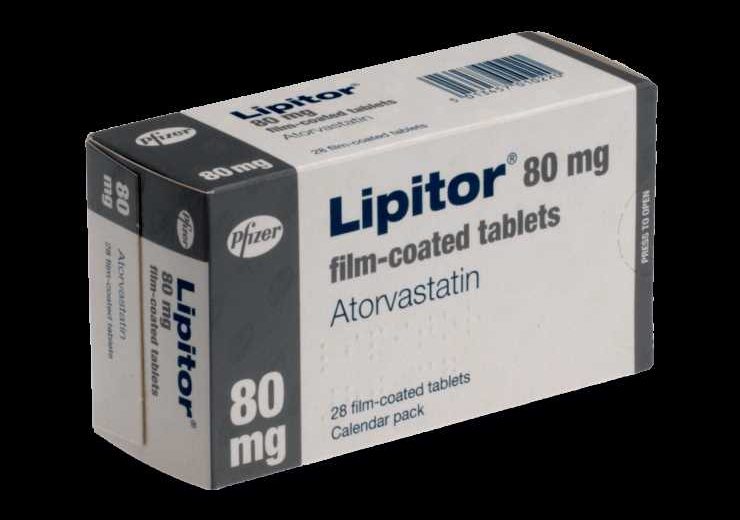
In the quest for optimal heart health, various pharmacological treatments have emerged, with some therapies standing out for their effectiveness in managing lipid levels. This article explores Lipitor, a widely recognized treatment, detailing its contributions to cardiovascular wellness while examining user experiences and outcomes.
Understanding Lipitor: An Overview
Lipitor is a prescription medication primarily prescribed to manage lipid levels in individuals at risk for cardiovascular diseases. By significantly reducing certain lipid concentrations in the bloodstream, it aids in minimizing the risk of heart-related ailments. Developed through extensive research, Lipitor has become a cornerstone in managing abnormal lipid levels and preventing serious health complications.
How Lipitor Works in the Body
Understanding Lipitor’s mechanisms is crucial for patients and healthcare providers alike. Lipitor belongs to a class of drugs known as statins, which are designed to lower cholesterol levels in the blood. It achieves this by inhibiting HMG-CoA reductase, an enzyme crucial for cholesterol production in the liver. This inhibition leads to a decrease in the synthesis of mevalonate, a precursor for lipid biosynthesis, thereby lowering overall lipid levels in the bloodstream.
The Role of Statins in Cardiovascular Health
Statins play a vital role in preventing cardiovascular events by improving lipid profiles. Lipitor enhances the liver’s ability to remove low-density lipoprotein (LDL), commonly referred to as “bad cholesterol.” Additionally, it improves endothelial function, reduces inflammation, and stabilizes atherosclerotic plaques, further promoting cardiovascular health.
Health Benefits of Lipitor: A Closer Look
Incorporating Lipitor into a health regimen can yield numerous benefits for cardiovascular health. Here are some of the key advantages:
- Reduction in Atherosclerotic Plaque Formation: Lipitor helps prevent the accumulation of plaques in the arteries, thus promoting arterial health.
- Stabilization of Lipid Profiles: By modulating cholesterol levels, it supports a healthier lipid balance in the body.
- Enhanced Endothelial Function: Improved endothelial function contributes to overall vascular health, reducing the risk of cardiovascular diseases.
In summary, Lipitor offers a multifaceted approach to improving cardiovascular health, enhancing overall well-being through effective lipid management.
Potential Side Effects: What to Expect
Understanding the range of reactions to Lipitor is crucial for safe use. Side effects can vary from mild to severe:
Common and Mild Reactions
Most individuals may experience mild side effects, such as:
- Gastrointestinal disturbances
- Mild headaches
While these symptoms are generally not alarming, they may require consultation with a healthcare provider if persistent.
Intermediate and Severe Reactions
Some patients may experience more significant reactions, including:
- Muscle aches
- Fatigue
- Sleep disturbances
In rare cases, severe reactions can occur, necessitating immediate medical attention. These can include:
- Allergic reactions (swelling of the face or throat)
- Liver dysfunction
- Rhabdomyolysis (a serious condition involving muscle breakdown)
Being vigilant about potential side effects ensures informed and judicious use of the medication.
Who Should Consider Lipitor?
Assessing Cardiovascular Risk
Individuals with a higher susceptibility to cardiovascular diseases should consider incorporating Lipitor into their health routine. This includes those with:
- A family history of high cholesterol or heart disease.
- Diagnosed conditions such as hyperlipidemia or familial hypercholesterolemia.
Lifestyle Considerations
In addition to pharmacological intervention, lifestyle modifications play a crucial role in enhancing the effects of Lipitor. Here are some strategies:
1. Dietary Adjustments
- Adopt a heart-healthy diet rich in fruits, vegetables, whole grains, and lean proteins.
- Limit saturated and trans fats; instead, incorporate sources of unsaturated fats such as olive oil, nuts, and fatty fish.
- Monitor sodium intake to maintain healthy blood pressure.
2. Regular Physical Activity
- Engage in at least 150 minutes of moderate-intensity aerobic exercise weekly, along with muscle-strengthening activities.
- Incorporate enjoyable physical activities into daily routines to maintain consistency.
The Mechanism of Statins Unveiled
Statins, including Lipitor, are essential for managing cardiovascular health. By modulating enzymatic pathways involved in lipid metabolism, these medications lower serum lipid levels, thereby reducing the risk of cardiovascular events.
Implications for Patient Care
Statins serve both preventive and management roles in cardiovascular health:
- Prevention: Effective in lowering cholesterol levels and preventing future cardiovascular events.
- Management: Crucial for individuals with preexisting conditions, aiding in disease progression.
Conclusion: The Multifaceted Role of Lipitor in Cardiovascular Health
Lipitor stands out as a critical tool in managing cholesterol levels and promoting cardiovascular wellness. Its multifaceted benefits, combined with appropriate lifestyle adjustments, create a comprehensive strategy for improving heart health. Understanding its functionality, potential side effects, and the demographics it serves allows patients to make informed decisions regarding their health regimens.
